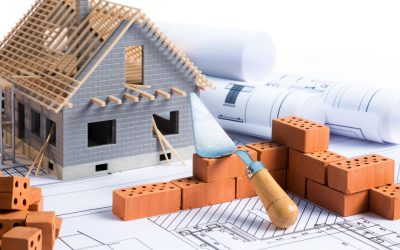Picture this: you’ve just furnished your rental property with brand new appliances, and now you’re wondering if you can write off those expenses.
Appliances for rental properties can be deducted as a business expense on your taxes. This includes the cost of purchasing, repairing, and maintaining appliances for your rental property. Be sure to keep accurate records and consult with a tax professional for specific advice.
While the answer is yes, you can write off appliances for rental property, there are some important considerations to keep in mind.
In this discussion, we will delve into the eligibility requirements for appliance write-offs, the regulations surrounding appliance deductions, the documentation needed to support your claims, and even some potential pitfalls to avoid.
So, if you want to maximize your tax savings and ensure you’re making the most of your rental property investments, keep reading to learn all about writing off appliances for rental property.
Key Takeaways
- Appliances used solely for rental property purposes are eligible for write-offs according to requirements.
- Expenses incurred in purchasing new appliances can be deducted from rental income, reducing overall tax liability.
- Depreciating appliances over 5 years is a common practice for tax purposes.
- Keeping thorough documentation of appliance expenses is crucial for claiming deductions and avoiding potential pitfalls.
Eligibility for Appliance Write-Offs
Appliances used solely for rental property purposes are eligible for write-offs, according to HM Revenue & Customs (HMRC) requirements. When it comes to claiming deductions, it’s important to understand the guidelines set by HMRC. If you own a rental property and need to replace damaged appliances, you can claim the cost as an allowable expense. This means that the expenses incurred in purchasing new appliances can be deducted from your rental income, reducing your overall tax liability.
Depreciating appliances over 5 years is a common practice for tax purposes in the UK. This means that you can spread out the deduction over multiple years, rather than claiming the full cost in a single year. Additionally, certain provisions in the UK tax law allow for immediate deductions of certain expenditures, such as under the Annual Investment Allowance (AIA), which can be utilized for appliances and furniture used for lodging. This allows you to take a larger deduction upfront, rather than depreciating the cost over several years.
When claiming the cost of appliances, it’s important to include delivery charges. However, keep in mind that including delivery charges may affect the overall deduction amount. It’s always a good idea to consult with a tax professional familiar with UK tax laws for accurate guidance.
HMRC Regulations on Appliance Deductions
When it comes to deducting expenses for appliances used in rental properties, it’s important to understand and adhere to HM Revenue & Customs (HMRC) regulations.
HMRC has specific guidelines on how to handle appliance deductions. Appliances are considered rental assets and are typically depreciated over a period of time. However, if the appliance qualifies as a small asset under a certain threshold, it can be expensed instead of depreciated.
Additionally, landlords can consider deducting more expenses, including appliances and furniture used for lodging, under certain provisions of the UK tax law. This allows for deductions within certain limits.
It’s crucial to include delivery charges when considering the cost of appliances for rental properties. These charges can be listed separately and included in the miscellaneous expenses section.
When replacing damaged appliances, landlords should retire the old asset and enter the new one, whether it’s due to tenant abuse or normal wear and tear. HMRC doesn’t require landlords to attempt to recover the cost of an abused appliance. This means that landlords can buy a depreciable replacement appliance without making the tenant pay for it.
Documentation Required for Appliance Deductions
To properly document appliance deductions for your rental property, it is essential to keep thorough records of your appliance purchases and delivery charges. This documentation will serve as proof of your appliance expenses, allowing you to claim the deductions on your taxes. Here is a table summarizing the key information you need to document:
| Appliance Purchase Date | Appliance Expense Proof |
|---|---|
| Date of purchase | Receipts or invoices |
| Cost of appliance | |
| Delivery charges |
By noting the date of appliance purchase, you can clearly establish when the expense occurred. This information is crucial for proper tax reporting. Additionally, keeping receipts or invoices as proof of your appliance expenses is essential. These documents will verify the cost of the appliance and any associated delivery charges.
Maintaining thorough documentation is especially important if you plan to claim certain deductions for your rental properties under UK tax law. For these deductions, you must have records of the appliance cost and its use in the rental property.
Furthermore, it is recommended to retain records of any replacement appliances and their costs. This will ensure accurate tax reporting and help you maximize your deductions.
Maximizing Tax Savings With Appliance Write-Offs
When it comes to maximizing tax savings with appliance write-offs, there are certain strategies and considerations that can help you make the most of your deductions. Here are some tips to help you maximize your tax savings:
- Importance of regular maintenance for rental property appliances:
Regularly maintain your rental property appliances to ensure they’re in good working condition. This not only helps to extend their lifespan but also ensures that they’re energy efficient, saving you money on your utility bills.
Keep a record of all maintenance and repair expenses related to your rental property appliances. These expenses can be deducted from your rental income, reducing your taxable income.
- Energy efficient appliances for rental properties: tax benefits and cost savings:
Consider investing in energy-efficient appliances for your rental property. These appliances not only help to reduce energy consumption but also qualify for tax benefits and rebates.
Energy-efficient appliances may also attract more tenants who are conscious about their carbon footprint and are willing to pay higher rents for energy-efficient features.
- Consult with a tax professional:
To ensure that you’re maximizing your tax savings with appliance write-offs, it’s advisable to consult with a tax professional. They can provide valuable guidance and help you navigate the complex tax laws and regulations.
Potential Pitfalls to Avoid When Deducting Appliances for Rental Property
Avoid these potential pitfalls when deducting appliances for your rental property to ensure you maximize your tax savings. While deducting appliance expenses can be a great way to reduce your taxable income, it’s important to be aware of common mistakes that can hinder your tax benefits and impact your rental property’s profitability.
One common mistake is failing to properly document your appliance expenses. It’s crucial to keep detailed records of all appliance purchases, including receipts, invoices, and any warranties. This documentation will serve as evidence during an audit and support your deductions.
Another pitfall to avoid is incorrectly categorizing appliance expenses. Make sure you understand the difference between repairs and improvements. Repairs are deductible in the year they occur, while improvements may need to be depreciated over time.
Additionally, be cautious of overestimating the value of your appliances. While you may be eager to claim a higher deduction, inflating the value of your appliances can raise red flags.
To help you navigate these potential pitfalls, here is a table outlining the common mistakes when deducting appliance expenses and the impact they can have on your rental property’s profitability:
| Common Mistakes | Impact on Profitability |
|---|---|
| Failing to document expenses | Risk of losing deductions |
| Incorrect categorization | Delayed or reduced tax benefits |
| Overestimating appliance value | Increased risk of audit or penalties |
Frequently Asked Questions
What Appliances Can Be Depreciated?
You can depreciate appliances for your rental property. Depreciation methods are used to calculate the value of these appliances over time. It’s important to add them as assets on the Rental Summary screen.
What Expenses Are Deductible From Rental Income?
You can deduct repairs and certain expenses from your rental income for tax purposes. This includes deductible repairs, property maintenance, insurance, utility bills, and letting agent fees.
Can I Claim White Goods Against Rental Income?
Yes, you can claim white goods against rental income. When it comes to claiming tax deductions for rental properties, appliances such as white goods are considered allowable expenses and can be included in your overall deduction amount.
What Are Landlords Allowable Expenses?
Tax deductions for rental property owners include property maintenance, repairs, insurance, utility bills, letting agent fees, and legal fees. However, you cannot write off appliances for rental property as allowable expenses.
Conclusion
In conclusion, landlords can write off appliances for rental property as legitimate expenses, as long as they’re used solely for rental purposes. These appliances can be depreciated over 5 years or expensed if they’re under $5000.
Additionally, appliances used for lodging can be deducted under Section 179, with appliances under $2500 being eligible for deduction.
It’s important to carefully document these expenses to maximize tax savings and avoid potential pitfalls.
- Rent-to-Rent Schemes: Hidden Dangers Lurk - July 6, 2024
- How to Sell Your House Fast in Kent - July 5, 2024
- 7 Tips to Sell Your House Fast - July 4, 2024


